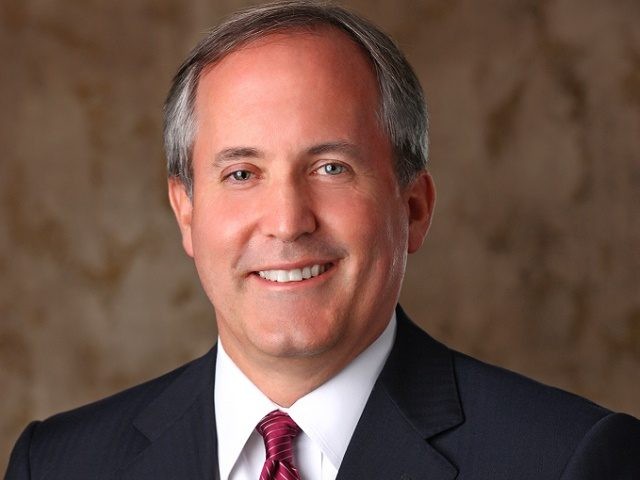Texas AG Paxton Urges Schools to Restore Lord’s Prayer
In a bold and decisive move to reclaim moral and spiritual clarity in public education, Texas Attorney General Ken Paxton recently called on schools across the Lone Star State to begin the legal process of allowing students to recite the Lord’s Prayer — the very words of Jesus Christ — as part of the school day.
This appeal, grounded in tradition and supported by the First Amendment, has sparked fresh hope among Christian families and religious liberty advocates while igniting controversy from progressive critics and secular organizations.
Stop Supporting Woke Cell Phone Companies
Make the switch to PureTalk. I am saving over 50%
Keep your phones, and phone numbers:
Plus – Get 2nd month for FREE with promo code: FLSFREE
https://GoPureTalk.Com
Paxton’s formal letter to the Texas Education Agency and local school districts asserts that nothing in the Constitution forbids public school students from voluntarily reciting the Lord’s Prayer. In fact, he argues, the U.S. Supreme Court has consistently recognized students’ rights to free religious expression, especially when not compelled by the government. His statement is not just a defense of rights but a call to moral courage.
“The recitation of the Lord’s Prayer is not just legal — it’s a time-tested tradition that helped shape the foundation of American values,” Paxton stated. “It’s time we return to the wisdom and stability that faith brings, especially in a time when our culture is spiraling into confusion.”
Reclaiming a Moral Compass
The Attorney General’s letter, issued in late August 2025, comes amid growing concerns over moral decay in public schools, where children are routinely exposed to ideologies that directly contradict the teachings of Scripture. Paxton’s stance resonates with a swelling number of Christian parents who feel their values are under siege in the classroom and want a return to biblical foundations.
Paxton clarified that schools are not being asked to mandate prayer, but rather to allow and encourage the lawful and voluntary participation of students who wish to recite the prayer Christ taught in Matthew 6:9-13. The prayer, often referred to as “The Our Father,” emphasizes God’s holiness, the coming of His kingdom, daily dependence on His provision, and the need for forgiveness.
In the words of Pastor Tom Buck of First Baptist Church of Lindale, a prominent Southern Baptist voice in Texas:
“The Lord’s Prayer reminds us of our utter dependence on God. If students can pledge allegiance to the flag, why not also acknowledge the Creator who gives us liberty?”
Legal But Rarely Practiced
The Christian Post reports that while student-led prayer has been upheld by courts — particularly when not officially endorsed or initiated by school staff — many schools have adopted overly cautious “zero-tolerance” policies regarding religious expression, fearing lawsuits from groups like the ACLU or Freedom From Religion Foundation. This has led to widespread misunderstanding and a chilling effect on students’ rights to practice their faith openly.
Paxton’s letter serves as both a legal refresher and an invitation to school boards and superintendents to reevaluate those policies. He explicitly cites federal and state law, underscoring that the recitation of prayers, especially when student-led or voluntary, is constitutional and protected.
In practical terms, Paxton suggests school districts consider permitting students to recite the Lord’s Prayer during announcements, before athletic events, or as part of moments of silence — options fully within the law, though often underutilized.
A Broader Spiritual Battle
The timing of this push is no coincidence. Across the country, schools have embraced teachings on gender ideology, moral relativism, and political activism while discarding Christian traditions and values. As cultural tides shift rapidly, many Christian conservatives believe this is a moment to push back and restore what has been lost.
Critics, predictably, have lashed out. Some have labeled Paxton’s move as a “violation of church and state,” a phrase often misused to stifle religious expression rather than protect it. Yet constitutional scholars note that the Establishment Clause was never intended to ban God from public life but rather to prevent government-mandated religion. The rights of students to express their faith have consistently been upheld — provided participation is voluntary and non-coercive.
“There is no constitutional crisis here,” said constitutional attorney Kelly Shackelford, President of First Liberty Institute. “There is only a cultural one — and Attorney General Paxton is right to lead.”
A Step Toward Revival?
Many Christians in Texas view this not merely as a legal issue but as part of a much-needed spiritual awakening. Reciting the Lord’s Prayer in schools is more than symbolic. It invites students to recognize a higher authority, to practice humility, to ask for daily provision, and to forgive others — timeless lessons for a generation starved of truth and meaning.
As secular culture continues to drift, Paxton’s call is a reminder that religious freedom is not a relic of the past. It is a living principle — and one worth defending. By advocating for students to voluntarily pray as Jesus taught, Texas may once again become a trailblazer in standing for faith, family, and freedom.


